#dame harriet walter
Text
Harriet Walter for Vogue UK, giving some very good advice ... and some maybe not so helpful
#dame harriet walter#harriet walter#vogue uk#best tea recipe#harriet walter being her quirky self while looking absolutely gorgeous#classy English lady with aristocratic sounding voice#being goofy and entertaining
231 notes
·
View notes
Text
Until I came to play her I did not understand why Lady Macbeth is supposed to be such a great role. She is out of the action for huge chunks of the play, has far fewer speeches than Macbeth and therefore fewer opportunities to explain herself. Macbeth on his own is unquestionably a great challenge for an actor, while Lady Macbeth on her own is less complex. But once you see her as dark twin, mirror, partner-in-crime to Macbeth, she becomes the great role of repute.
A year after playing the part I am left with the feeling of having made a fist-sized dent in a battleship. I had concentrated on finding the extremes to which a 'normal' person can be driven rather than personifying an 'abnormal' psychopath. In the context of our production that was the coherent path. There are many others.
The 'normal' person approach takes you on a bumpy ride. I had to dig around for anything I might have in common with Lady Macbeth, which is not a happy pastime. There is a fury inside me somewhere, there is a hunger and maybe even the capacity to kill. Am I unusual? I don't think so. The point is that the condition of my life does not feed and sustain these qualities. Rage erupts and dies down. Hunger is kept at bay by a mostly satisfying life, and if I ever want to kill, the feeling lasts for a second and is quickly quelled by thinking of the consequences.
So is it only our circumstances that separate me from Lady Macbeth, or does the difference lie in the murkier area of our basic nature? And is as an actress I am able to remould my personality and even to some degree the inner workings of my imagination, how resilient is that basic nature of mine? In order to understand Lady Macbeth's motives I had begun to empathise with her, and empathy blurs moral judgment.
The major difference is that I only thought about the things she activated. In that sense perhaps we are all Macbeths, our criminal potential safely dormant until circumstances or a Lady Macbeth whips us up out of our law-abiding complacency.
Dame Harriet Walter's "Post Mortem" of analyzing Lady Macbeth, in Brutus and Other Heroines: Playing Shakespeare's Roles for Women
154 notes
·
View notes
Text
This video is literally every friend group ever:
youtube
And it is also the epitome of British popular culture.
#william shakespeare#shakespeare#shakespeare quotes#shakespeare memes#friendship#friendship memes#english literature#hamlet#royal shakespeare company#shakespeare live!#to be or not to be#that is the question#benedict cumberbatch#david tennant#prince charles#king charles iii#judi dench#dame judi dench#tim minchin#paapa essiedu#ian mckellen#sir ian mckellen#harriet walter#british actors#dame harriet walter#british actresses#famous actor shenanigans#this is as british as it gets. folks#Youtube
19 notes
·
View notes
Text
“The name’s not Rebecca’s mum; it’s Deborah. I’m a work in progress, a voracious book-on-tape listener, and a staunch believer that if you get dealt lemons in life you should make lemon lavender mojitos.”
-Deborah Welton
#ted lasso#ted lasso 2x06#the signal#Deborah welton#dame Harriet Walter#Harriet the Harriet#Rebecca’s mum
9 notes
·
View notes
Text
"But there is something particular about Cleopatra and the imaginative escape she offers for white performers. She presents a fantasy of a stately queen with an erotic power that white actresses can inhabit and take pleasure in without facing any of the difficulties faced by Black women. Like white European colonial settlers, they occupy her character though only briefly. And this is nothing new. In the seventeenth century, one aristocratic woman had her portrait painted as Cleopatra—a performative act in which it was possible to pretend to be the kind of woman she could never actually be within the chaste and virtuous bounds of Renaissance white womanhood. The sitter is identified as Lady Anne Clifford. A Jacobean lady in Egyptian regalia, according to seventeenth-century orientalist notion of national costume, holds an asp above her breast, iconically invoking Cleopatra. For a long time, it seems, white women have stepped into the fantasy of the dark queen.
It seems odd that Antony and Cleopatra was not always viewed as one of Shakespeare's race plays. That is changing, finally. If theatre directors continue to centralise whiteness in their readings of the play, however, it in many ways replicates Caesar's triumph over Egypt. We relive Cleopatra's defeat every time we watch a white woman play her—due respect to Dames Judi Dench, Helen Mirren, Harriet Walter, and Eve Best. But we begin to see more clearly the Egyptian Queen's own prophetic vision as she chose to end her life on her own terms. She imagined herself being performed for years to come by actors who do not resemble her in any way—and that is, for the most part, what has happened."
—Dr. Farah Karim-Cooper, The Great White Bard: How to Love Shakespeare While Talking About Race (emphasis mine)
#max.txt#antony and cleopatra#i am reading this book so so slowly due to the Life but i recommend it!#i honestly wish dr. karim-cooper was a little harder on shakespeare. but the analysis is really good regardless
182 notes
·
View notes
Photo

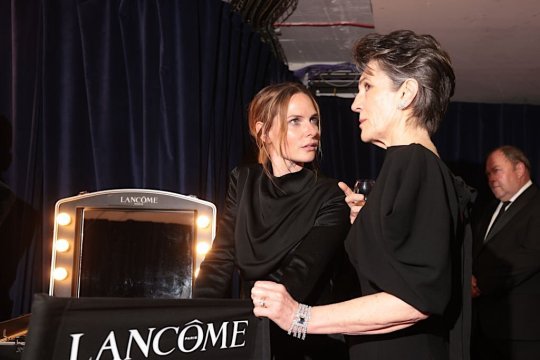

Rebecca Ferguson and Dame Harriet Walter backstage during the 2023 BAFTA Television Awards with P&O Cruises at The Royal Festival Hall in London, England | May 14, 2023
#rebecca ferguson#rfergusonedit#harriet walter#flawlessbeautyqueens#flawlesscelebs#dailytvwomen#breathtakingqueens#thequeensofbeauty#agelesswomen#ladiesofcinema#wonderfulwomendaily#femaledaily#femalestunning#dailywomen#appearance#2023 bafta tv awards
211 notes
·
View notes
Note
literally sooo fascinated by logan and caroline's marriage tbh. give us all your thoughts!! (if you want ahah)
Oh, man, I could talk about them all day, haha. I kinda feel like people can sometimes rob both Caroline and Logan of any nuance, because yeah, sure, they’re often the central antagonists of the series, and their abuse and neglect of their children permeates the series, but the show’s always also been careful to show that the cycle of violence never started with Logan, and Harriet Walter’s talked in interviews too about the cycle of neglect not starting with Caroline either. They’re victims and perpetrators in the same way that Kendall, Roman and Shiv are victims and perpetrators, and the fact that neither of them were able to break that cycle is the exact sort of tragedy that's at the broken heart of this series.
It makes it really fascinating to me in that sense that Caroline and Logan found each other at all, and I think really slots into what we know about his three marriages – namely, that he marries women who are in some ways as damaged by life’s cruelties as he is. We understand that explicitly with Marcia, who pretty much says out loud that their connection has been born out of the fact that they’re both survivors, but I think it’s implied in his relationships with both Caroline and Connor’s mother too. At least Marcia and Connor’s mother became somethink like partners for a while too – Marcia was a co-conspirator with Logan for the bulk of season 1, and the RECNY Ball episode I think also showed that Connor’s mother, for at least a while, was the sort of socialite who could lubricate and work politicians alongside Logan.
We don’t really know what role Caroline played in that sense, but she’s obviously intelligent and savvy enough to have worked to secure the kids real power in the divorce, something we see her give back to Logan in 3.09. We also know that her title gave Logan the class elevation that he wanted (even if its one he also seems to bitterly resent), and that his money gave her security, and in a lot of ways, that’s a strategic match that sees them both step forwards in power together.
I was actually listening to an old episode of Vanity Fair’s Succession podcast recently where they interviewed Dame Harriet Walter, and she talks quite a lot about Caroline’s backstory.
She says that Caroline was born into a neglectful aristocratic family, an only daughter who due to the social structures of British aristocracy, wouldn’t have inherited her father’s estate as a result of her gender. Instead, his estate would’ve gone to a distant male cousin, which ties into what Connor says in 1.09 to Willa about the house being the ancestral home Caroline didn't inherit.
She was disregarded by her family but encouraged to marry rich, and she sees Caroline as having gone through a bit of a wild child phase, that she partied, used drugs, tried to escape herself. That she was probably featured frequently in the social columns ‘in disgrace’, and then married young to a rich British man who bored her. She sees Caroline as having escaped to New York on a trip, and met Logan who dazzled her. Who was the opposite of the men she’d grown up with, the men who’d cut her out of her own inheritance, and that he was exciting and creating something and married too, and that they likely left their spouses for each other. That he married for a title, but he also married her because he found her fun and funny and different from the other women of her class and station.
I actually love that backstory a lot, and in particular I think it feeds into the themes of cycles on this show, both with Shiv, but also in Caroline being cut out by her own family, and then cut out by the one she tried to make for herself, and the damage that likely caused her. It also I think really beautifully depicts this idea of legacy and succession which is so crucial to the show – that Logan can spend a childhood brutalised by a man who’d give him just enough to build an empire on and that Caroline can spend a childhood in luxurious neglect with parents who will leave her with nothing.
What that meant for their relationship - - I think they did love each other, as much as they could love anyone, and I think that vulnerability between them was something that probably allowed them as true an intimacy as they’d ever have for a while. I also think that that vulnerability and that intimacy gave them power over one another that they’d use often and likely cruelly, and that the final years of their marriage were probably torturous for both of them.
After all, at the end of the day, Logan had the wealth Caroline could marry but never inherit, and Caroline had the title Logan could marry but never inherit, and what is that if not a reminder of the poisoned soil they sprung from?
#i am literally obsessed with them#in the 1980s spinoff in my head they are despicable to one another and i adore them#interestingly too harriet walter says that they were married for 15 years#which is an interesting indication in terms of the kids' age gap too#with the insane timeline that exists in my head haha#i do think it's probably four years between shiv and kendall#and roman and shiv are either twins or he's a year older than her / three years younger than kendall#which works with shiv being 11 when caroline left + the 15 year marriage#anyway haha#caroline collingwood#logan roy#caroline x logan#hbo succession#succession meta#welcome to my ama#always thinking about Them atm
234 notes
·
View notes
Text
Harriet Walter on how Caroline has influenced or realtes to each of the golden trio.
“She probably is a bit frightened by Siobhan because she’s quite like her dad and is very very smart about stuff that maybe Caroline isn’t. I don’t think she resents – I think she’s quite competitive for her affection because she admires her. I think it’s very possible for a mother to look up to her daughter if she’s not very like her, because I don’t think they are very alike.
I think If anything, funnily enough I think the one who’s most like – Caroline has flowed a bit into Kendall in that I think she has more depths than we’ve seen. A bit more inside torture than we’ve seen. And I think she’s also flowed into Roman because she’s got that glib “ha ha ha” every line is a joke defense mechanism. So I think those are the people she’s influnced or influenced by – I think Shiv is very different from her and very much her own thing and I think she’s quite scared of her really. And of course Shiv probably wants big affection too but just really doesn’t beg for it in the same way that Caroline probably never begged for it from her parents. It’s a terrible kind of poisoned challice, all that welath and power if you’re born into it.”
Excerpt from Excerpt from Still Watching: Succession Season 2 "Dundee" with Dame Harriet Walter – Sept. 29, 2019
#I should basically become a caroline blog at this point#and yeah...I probably will end up writing something about this at some point#especially her relationship with and similarity to kendall#I'm a Kendall and Caroline actually have a hugely complex relationship truther#and she's deeply wounded by the state of her relationship with all her kids (including Kendall)#she's obviously not a perfect mom and has done a lot of damage but she's also been damaged by her past and by Logan and#I have so many Caroline feelings all the time#also ouch - Shiv and Caroline#caroline collingwood#hbo succession#cast interviews#succession#kendall roy#shiv roy#roman roy#harriet walter
120 notes
·
View notes
Text
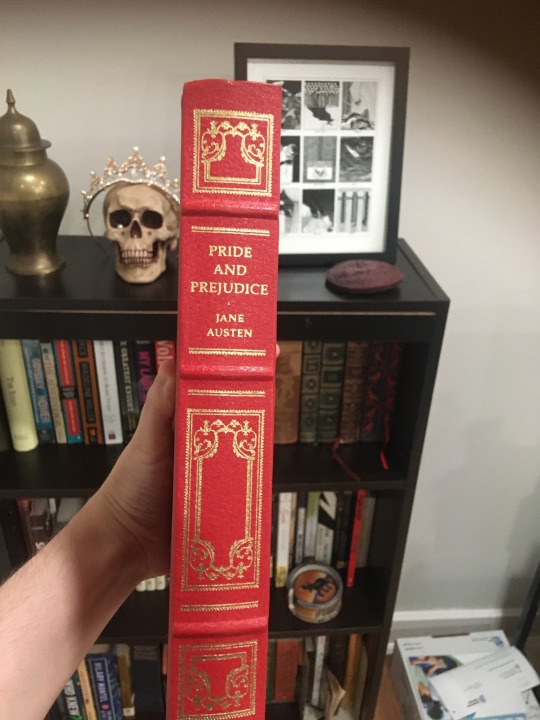
Just got this secondhand copy of Pride and Prejudice (1980 Franklin Library edition) and found that it has PORTRAITS of the characters inside! I am rating them based on how well I think the portraits suit them. Feel free to give your ratings!
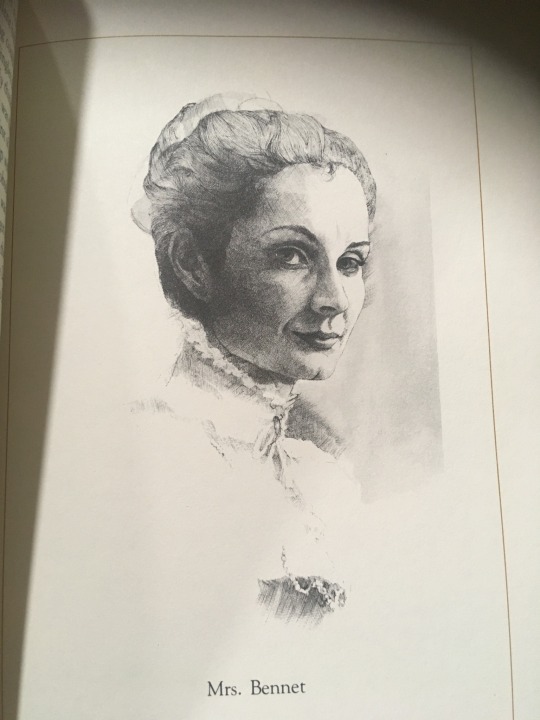
Mrs. Bennet. 5/10. She doesn’t look nearly frazzled and bonkers enough. I know Mr. Bennet married her for her beauty and then was disappointed by her General Personality, but i feel like this one’s all beauty and no personality. The portrait looks shrewd and calculating, but Mrs. Bennet’s shrewd plans are about as subtle as a stampede of elephants.

Mr. Collins: 9/10. He appears to be played by Harvey Guillen, which seems right. He’s got the perfect self-important expression and tilt to the head. The only thing lacking is that he looks a touch too intelligent and charismatic to be Collins. His eyes have a spark of life in them. In my mind, Collins has the beady senseless eyes of a squirrel.
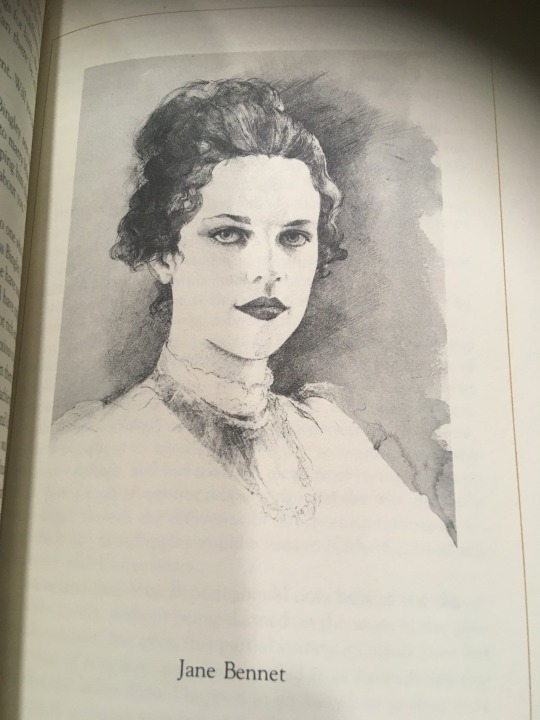
Jane Bennet: 3/10. She’s appropriately beautiful, but this look is egregiously 1980’s. Also she has RBF. My sweet Jane would NEVER.
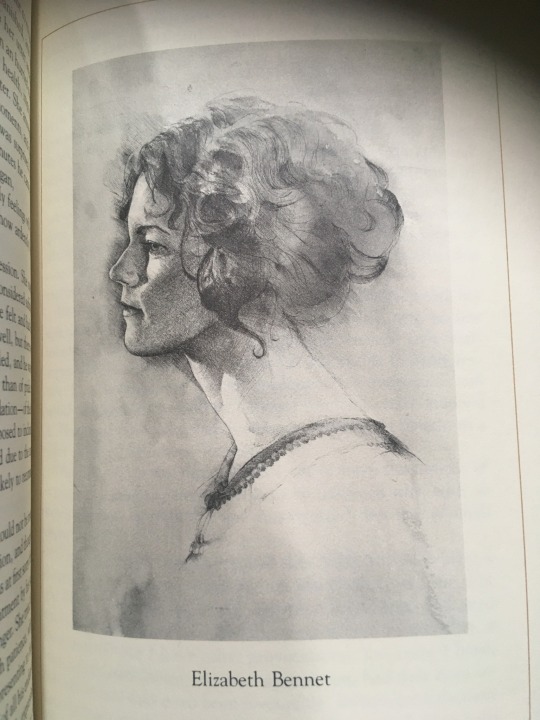
Elizabeth Bennet: 7/10. This is an interesting one. I was pleasantly surprised they didn’t make her excessively pretty. She loses points for her hairstyle, which appears to be from Mount Olympus by way of the Roaring Twenties, and the fact that the profile view means you can’t see her Fine Eyes.
I am assuming Elizabeth may be a self-insert portrait because I figured everyone pictures Elizabeth to either look like oneself, Keira Knightley, or Jennifer Ehle, and this book was published before the latter two played the role.
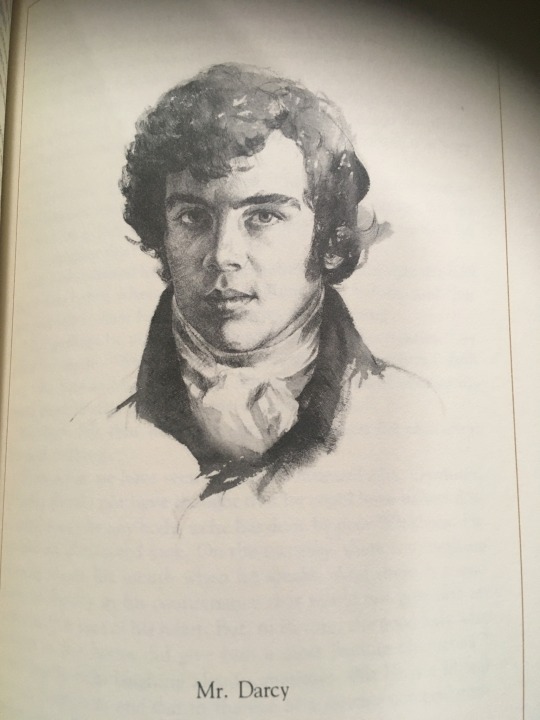
Mr. Darcy: 8.5/10. This is so close to perfection, but the cute button nose spoils it. It’s hard to come off as truly brooding and grand with a cute little button nose. He also seems kinda young, like he’s the resident “dreamy guy” in the college student theatre troupe who got cast as Mr. Darcy, rather than the character himself. He looks like Billy from Stranger Things put on a black wig and went out for a Jane Austen period drama to avoid getting typecast. He looks like the guy you hire when you can’t get Timothee Chalamet.
He gets an extra half point for the quizzical brow.
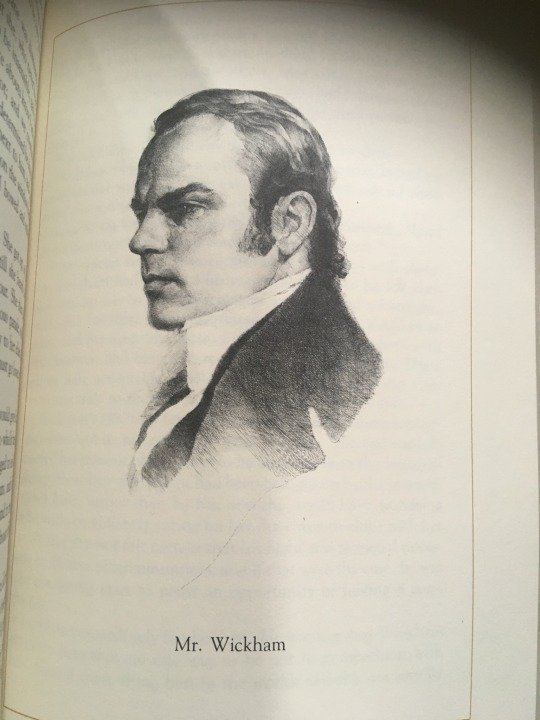
Mr. Wickham: 8/10. That expression tells me everything I need to know. He has the face of a cad and a scoundrel. But I maintain that Wickham never would have gotten away with his nefarious schemes without a full and luscious head of hair, or at least a nice wig. The hair does the heavy lifting of hiding the holes in his stories. This is not the hairline of a serial liar and rapscallion. This is the hairline of an honest man with nothing to hide.
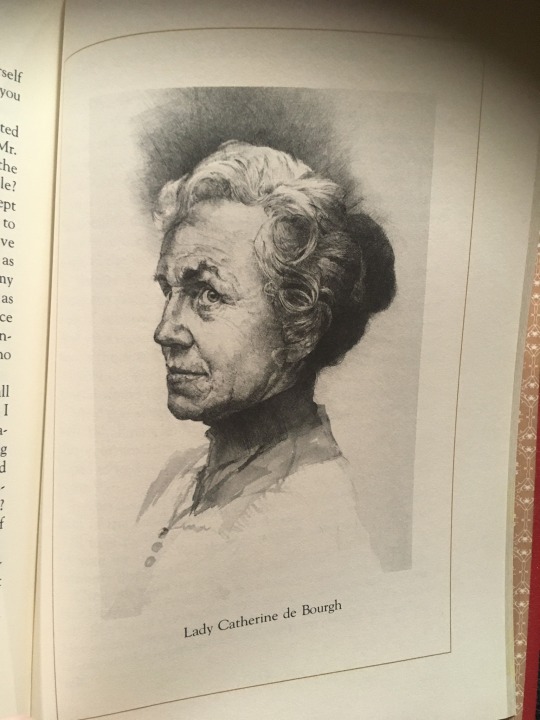
Lady Catherine: 9/10. She’s somehow nothing like what I expected yet also perfect because she bears a startling resemblance to the wonderful Dame Harriet Walter, who’s required to be in every period piece ever made. Has she played Lady Catherine? She should play Lady Catherine. She loses a point for not wearing anything ostentatious in her hair.
658 notes
·
View notes
Photo

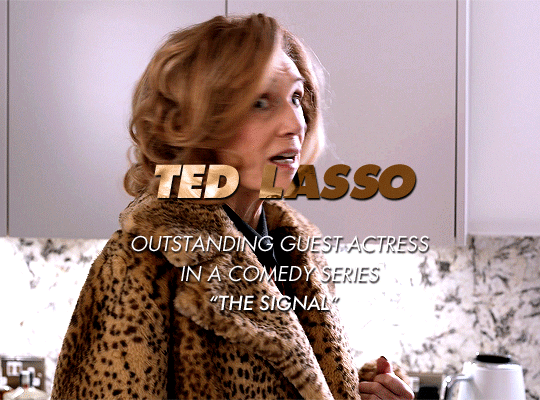
Congratulations Dame Harriet Walter on being nominated in both Best Guest Actress categories for the 2022 Emmy Awards!
#harriet walter#ted lasso#succession#tedlassoedit#successionedit#tedlassogif#hboedit#tvedit#tvfilmgifs#cinematv#cinemapix#tvfilmdaily#usergiu#my edit#edit: awards#donmar trilogy stans make some noise#i didn't realize until i was writing the caption that there were 5 double acting nominees this year#i'm sure people have talked at length about the similarities between these characters#but it's *elinor voice* so interesting!!
644 notes
·
View notes
Text

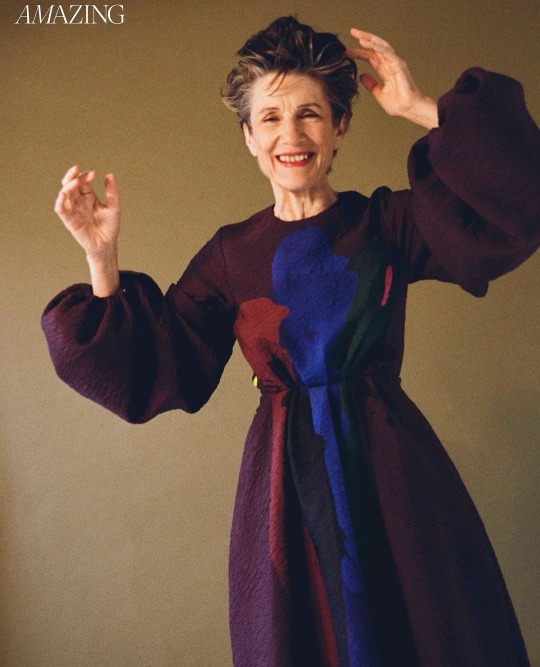
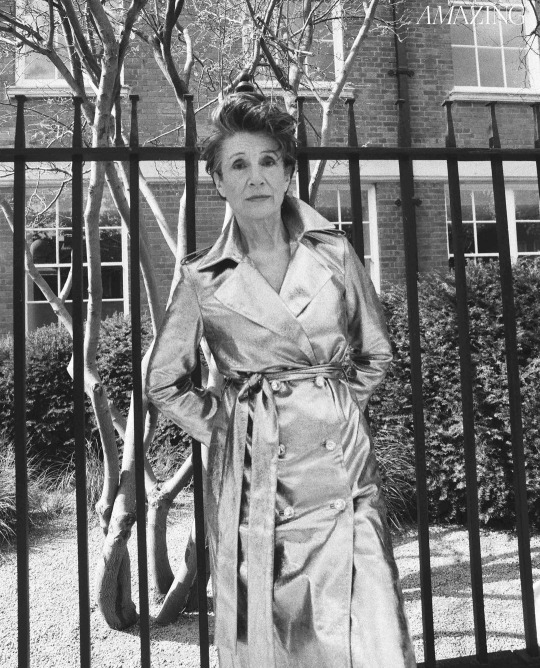
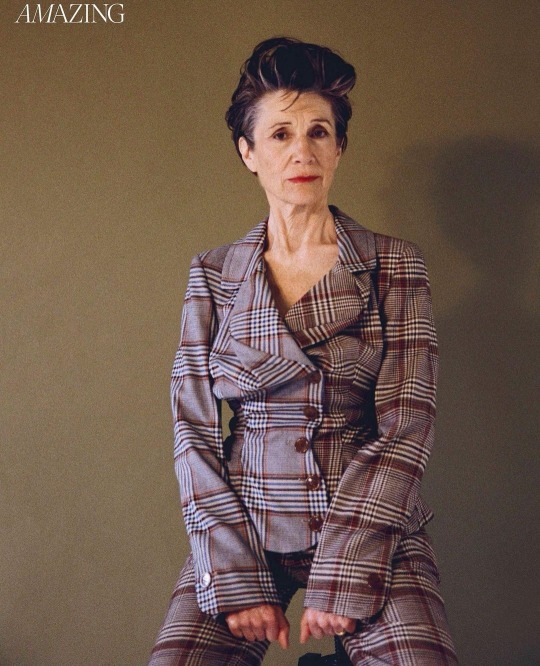

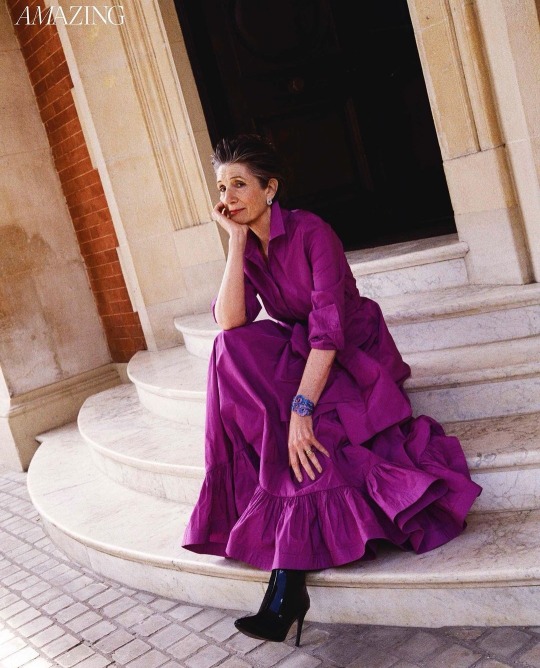
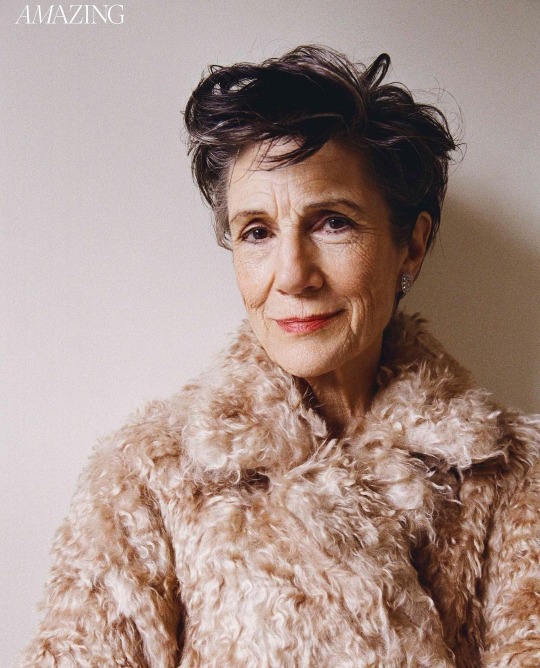
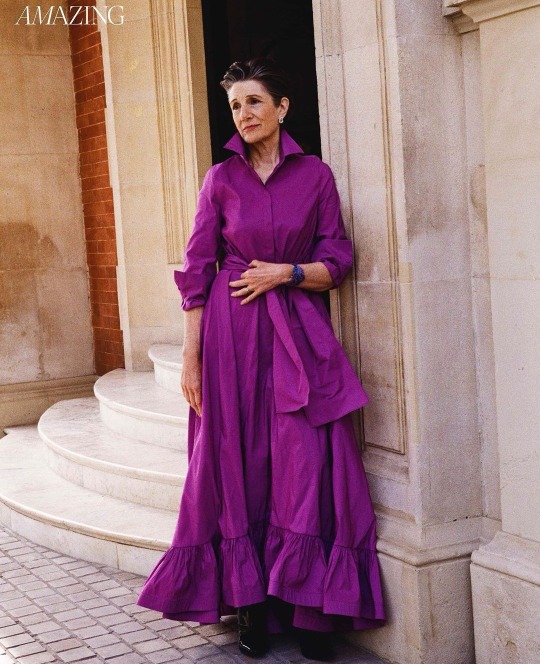

Dame Harriet Walter looking amazing in the Amazing Magazine
#harriet walter#dame harriet walter#getting cooler every year#no words.......just me being dead#she's everything#those hands#that smile
129 notes
·
View notes
Text
Whether in classical or modern drama, I fight for the right to portray women who are as contradictory, complex and diverse as the women I see all around me, and I uphold my right to present ordinary, flawed women at the heart of a play.
Dame Harriet Walter, from Brutus and Other Heroines: Playing Shakespeare's Roles for Women (specifically from her section about playing Helena in All's Well That Ends Well)
133 notes
·
View notes
Text
'David Tennant bounds into the room, friendly, super articulate and energetic.
The actor and Doctor Who favourite, regularly voted the best Doctor by fans, is set to appear once again as the Time Lord in the forthcoming 60th anniversary specials.
The ongoing actors' strike prevents him from talking about those (Doctor Who is now a BBC/Disney co-production and US actors' union Sag-Aftra has been on strike since July).
But we're together, in a room full of books and leftover croissants - clearly actors need sustenance - to talk about Shakespeare, a playwright Tennant calls a "genius" who "had a particular sense of what it is to be a human" and expresses it "in a way no one else really does".
Tennant, who is an associate artist with the Royal Shakespeare Company, is steeped in the Bard. One critic described his Hamlet, which aired on the BBC in 2009, as "theatrical history in the making".
He excelled as Romeo and Richard II and, when we met, had just finished his first day of rehearsals for an already sold out run of Macbeth at London's Donmar Warehouse.
He's no-nonsense about the superstition of only referring to this most atmospheric work as the "Scottish play". Tennant freely uses the word "Macbeth".
But he admits to terrible nerves ahead of the show - however successful you are, it never gets any better, he says.
Renowned actors have been in his shoes; famously Lord Olivier was Macbeth to Vivien Leigh's Lady Macbeth in 1955, Sir Ian McKellen and Dame Judi Dench had their turn in 1976 and Sir Antony Sher and Dame Harriet Walter in 1999.
For Tennant, Shakespearean roles are like "Olympic events for an actor".
"The idea that you're being invited to stand next to these greats and sort of challenge yourself, test yourself against them and see if you've got something new to bring to that… that's part of what's exciting about it."
West Lothian-born Tennant "always wanted to be an actor" (his childhood obsession with Doctor Who had a big part to play in that) and from the way people talked about the plays, "I knew there was something magical about Shakespeare."
But that didn't mean he was immediately hooked when introduced to Macbeth at school - although he's at pains to praise his teacher.
He says the plays were written to be performed and it's "a shame that the first experience of Shakespeare is sitting in a classroom, trying to mouth these words that don't sit in your mouth and don't necessarily make a lot of sense to you at the age of 14".
"That's why a lot of people fall out of love with Shakespeare before they've really had a chance to fall in love."
Tennant fell in love when TAG, a Glasgow theatre company, brought As You Like It to his school's assembly hall. "I didn't necessarily understand every word and some of it felt perhaps a little unnatural and foreign to me". But the teenage Tennant was transported "because it was live and it was happening".
Now his head is brimful of a play that opens with three witches plotting and takes us on a journey of murder and guilt. Tennant says Shakespeare's take is "incredibly modern".
"The way he expresses Macbeth's fear of never sleeping, the torture of being in the restless ecstasy of never being able to close your eyes."
Even for Tennant, though, Shakespeare needs decoding. He tells me, when he opens one of the plays, he "100%" puts the modern translation next to the old. He deciphers the language so theatre audiences don't have to.
"If we're doing our job halfway properly, you shouldn't have to worry about understanding every syllable. You will be transported by it."
There can, though, be layers of meaning that still surprise you 10 weeks into a run, he says. "Usually on a wet Wednesday afternoon matinee, you'll suddenly go 'oh, that's what that line means.'"
Macbeth is one of 18 Shakespeare plays that would have disappeared if, seven years after his death, the actors John Heminges and Henry Condell hadn't published their friend's greatest plays in the First Folio.
That book was the first time the plays had been put together.
Before then, only 18 had been printed, in small paperback editions known as quartos.
The First Folio was registered for publication on 8 November 1623.
There were 750 copies made. Without it, we could have lost all the unprinted plays, around half of Shakespeare's works, including not just Macbeth but Julius Caesar, The Tempest, As You Like It and Twelfth Night.
Four hundred years on, 235 original First Folios are known to survive - 150 are in the US, and about 50 in the UK and Ireland.
The BBC is running a huge amount of content to mark the 400th anniversary. The celebratory season will include the 2018 adaptation of King Lear starring Sir Anthony Hopkins, Shakespeare Live! from the RSC, and a semi-fictionalised comic drama on Radio 4 about the creation of the First Folio.
Tennant says: "The reason that those plays are still performed around the world and the reason that Shakespeare is the cultural colossus that he is, is because that book was published."...
For Tennant, Shakespeare is "weirdly modern" because he captures how complicated it is to be human.
"He writes about the moment he was in, which seems to, by dint of his genius, also be the moment we are in."
Tennant is one of the UK's most exciting actors, known to wider audiences not just for Doctor Who and Broadchurch, but his film role as Barty Crouch Junior in Harry Potter and the Goblet of Fire.
But you get the sense that there's even more magic, for Tennant, in performing Shakespeare.
It's why he is celebrating the anniversary of the First Folio, that book that was the first step in creating a legacy for the greatest playwright in the English speaking world.'
#Shakespeare#David Tennant#Macbeth#Donmar Warehouse#Doctor Who#Broadchurch#Barty Crouch Jr.#Harry Potter and the Goblet of Fire#60th Anniversary#Richard II#Romeo#Hamlet#RSC
37 notes
·
View notes
Text
Queen Camilla hosts 'Celebration of Shakespeare' event at Grosvenor House (2024)
(back row) Dames Joanna Lumley, Floella Benjamin, Twiggy Lawson, Harriet Walter, Penelope Wilton, Maureen Lipman
(front row) Virginia McKenna, Sian Phillips, Judi Dench, Vanessa Redgrave, Penelope Keith and Patricia Routledge
#penelope wilton#maureen lipman#harriet walter#joanna lumley#floella benjamin#twiggy#patricia routledge#penelope keith#vanessa redgrave#judi dench#sian phillips#queen camilla#british royals
10 notes
·
View notes
Text
"Abacus Media Rights has pre-sold the feature documentary “The Life and Deaths of Christopher Lee,” to Sky Arts, SBS Television Australia; to NonStop Entertainment for Scandinavia, Iceland and the Baltics and to Movistar for Spain.
Lee is known as the Dracula character and for transitioning from 1960s Hammer horror films to a distinguished acting career that encompassed James Bond films, the “Star Wars” and “Lord of the Rings” franchises.
Less well-known are his aristocratic Italian roots, a close family connection to James Bond novelist Ian Fleming, Lee’s wartime experiences in the British and Finnish military, post-war Nazi-hunting adventures and a side career as a heavy metal rock singer. As an actor, Lee achieved a Guinness world record for the highest number of screen appearances.
Produced in association with the British Film Institute and Trigger Films by Canal Cat Films, “Life and Deaths” is an innovative documentary which uses fresh interviews, archive material and multiple forms of traditional and cutting-edge animation, including marionation, to bring one of the world’s leading actors back to life on screen.
A-list directors and actors set as contributors include Peter Jackson, John Landis and Joe Dante, as well as Lee’s niece, actor Dame Harriet Walter."
16 notes
·
View notes
Photo

The arts stop society going rotten and mad.
- Vanessa Redgrave
Dame Judi Dench delivering Hamlet’s iconic ‘To be or not to be’ line at the RSC in 2016 to commemorate the 400th anniversary of William Shakespeare’s death. Dench shows everyone how it’s done in front of Tim Minchin, Harriet Walter, David Tennant, Paapa Essiedu and Benedict Cumberbatch on stage.
53 notes
·
View notes